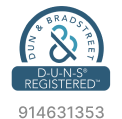Na Articulate, we are used to bankruptcy or status quo. We have been developing e-learning applications and tools as a fully remote company for more than 15 years. Working remotely requires thinking outside the box from time to time. Naturally, we develop exclusive approaches for many traditional business processes.
Our interview process in the platform engineering team is just an example. How it comes is not very different from what most companies do: launch a job announcement to work at home on the Internet and wait for the registrations to clear. This is the most “normal” possible in the Articulate interview process. The next steps will lead to your own life.
Selection of candidates is a global effort
Finding people in distant time zones is nothing new for us. Just look for our platform engineering team. We 13 are supported by the United States, Canada, India, New Zealand and the Netherlands. And we use this wide distribution of time zones to our advantage, conducting asynchronous and fully distributed team interviews on Slack.
Our goals for Slack interviews:
- Give a voice to everyone on the hiring team
- Preserve the best parts of our culture
- Find incredible talents, regardless of where they are located
To achieve these objectives, we depend heavily on asynchronous communication. We are always thinking about how to work together effectively when we are not in the same physical space. Here are the stages that lead to a Slack team interview.
A foot in the door
After the hiring manager reviews the candidates, we identify the people we will refer for a telephone interview. The hiring manager conducts an initial interview by phone with the candidate (we will call it “Robin” in this example) and builds an understanding of technical depth, breadth, career background, interests, personality and much more.
Now that the phone interview is scheduled, next stop: interview with the Slack team! We continually evolve our processes, including how we approach team interviews on Slack today. (You are encouraged to use this as a starting guide for conducting a Slack interview for your team.)
Welcome to Slack!
Before Robin starts interviewing the Slack team, we have to work behind the scenes. It looks like this:
Create two private Slack channels: #platform-robin and #backchannel-robin.
One day before the start of the team interview, I invited the team to #backchannel-robin. Here, we share Robin's resume, LinkedIn profile and other relevant content. This channel is for coordinating questions, scheduling sets, and discussing Robin's overall technical skills.
At the start of the interview, we invite Robin to Slack as a single-channel guest with an automatic expiration date. (Multi-channel invitation is discouraged because the single channel is free and will avoid the constraint of inviting the candidate for a channel that should not be seen)
Now that we have made our part so that the interview of the Slack team can be carried out, we send an accompanying email to Robin (in case the spam filter of the engolisse or invitation) with a note to send a ping to us in Slack when he enters the # platform-robin channel.
After Robin gets together, we reiterate the format and define expectations. We discovered that repetition is useful to reinforce and define psychological security that it is not necessary to falter at all. Therefore, Robin will not be eager to respond immediately to any questions you may have.
Next, I invite the rest of the platform engineering team for #platform-robin and, if they are new to boarding, you will have to (em #backchannel-robin ) to give these blessings to Robin. To ensure that communication flows without problems, we have a list of suggested topics and questions for you, for when things need some help. Example topics include systemic thinking, software engineering, building for resilience, and emotional intelligence.
Sometimes there are questions that a candidate would not like to ask in front of the entire team. We make it safe for them, being explicit about how to contact the hiring manager, if necessary.
Looking for the general squad, we spent the first day learning about the candidate as a person. Right now, we are trying to do something we can do well. Day 2 and 3, we address technical questions and topics related to work. We seek curiosity and expertise in work and adequate levels of technical depth and experience for performance.
And before we realize, it's the end of the third day! We sent a DM to Robin to let him know that this is the last day of the interview and that it will automatically expire next night. We also remind the #backchannel-robin team that Robin's account in Slack will be automatically locked at the end of the day.
Post-Slack Interview
The next day after closing the interview with the Slack team, let's ping the team on #backchannel-robin. We start a discussion in Slack or dial a video chat. The team's interaction with Robin will, in large part, direct their opinions. We also tackle the following quests:
- Or candidate will be a “values adjustment”?
- Is there something we would enjoy working every day?
- Do they combine with the priorities of our team and the company?
- Eles we trace a new perspective?
- Would it be painful for us not to hire that individual?
If the team has a “non-hired” position, we immediately go to the video interview and investigate these concerns as a team. We want to be thorough and uncover any problems or unconscious preconceptions in our hiring process.
Sometimes, there is a simple misunderstanding or lack of context, so talk about it with a team that can help unravel the underlying problem. Other times, we need to accompany the candidate to clarify some doubtful issues. If we cannot alleviate your concerns as a team or with an accompaniment, we will inform the candidate that we do not believe this is a good option at the time.
The final challenge
The final stages vary according to the requirements of a position. If Robin has everything we are looking for, we will discuss benefits, salary and much more. As long as these details are correct, we will make an official offer.
Here is what we learn
When you go against the norm, do things that will be learned. Here are some of the main conclusions of our experience with the Slack team interviews so far:
- Be clear with candidates about expectations; Communicate what will happen in the Slack interview. This interview approach is mutual, so we strive to reduce it to the maximum possible ambiguity.
- I do not have to finish the interview but I give up if it is not in progress. We have cases where the team raised concerns in the backchannel, explored with clarifying questions and still felt that there were significant warning signals. We always collect various opinions to verify our preconceptions, but if we do not feel like working with a candidate from the beginning, we will thank him for his time, we will explain that we do not notice that there is a good adjustment in the moment and we will schedule the Slack interview. Do this as soon as you respect the time of the candidate and his team.
- Create flexibility for very remote time zones without processing. We discovered that, when talking to candidates in Asia or Australia, our team needs a more flexible time during the interview process. Most of our team is in North America, so there is some overlapping of work hours with candidates in different time zones. To combat the feeling that we are in the wrong place, we are interviewing the Slack team for four days.
Summary
This style of interview is delayed. If you are not certain that this approach will work for you, first experiment internally with a test. Requires the addition of your team and management, but the benefits are significant. You give a voice to everyone on your hiring team, preserve the best parts of your culture and find incredible talent, regardless of where they live. Also, interviewing candidates in a way like Slack, where both sides usually sit on their own, helps keep everyone on their toes and allows conversations to flow more naturally.
What comes as a curious hiring experience is essential for the interview process of the platform engineering team. So far, it seems to be working well, despite some setbacks, we are receiving extremely positive feedback from candidates about the process.
Content originally published in: Articulate Blog
We are Software.com.br, Official Articulate Representative in Brazil and also a reference in technology solutions for the corporate world in Latin America. Count on our consultants specialized in Software Licensing, Cybersecurity, DevOps, Infrastructure and Data Analytics.
See more about Articulate on our site: Sofware.com.br









 8 min reading
8 min reading




